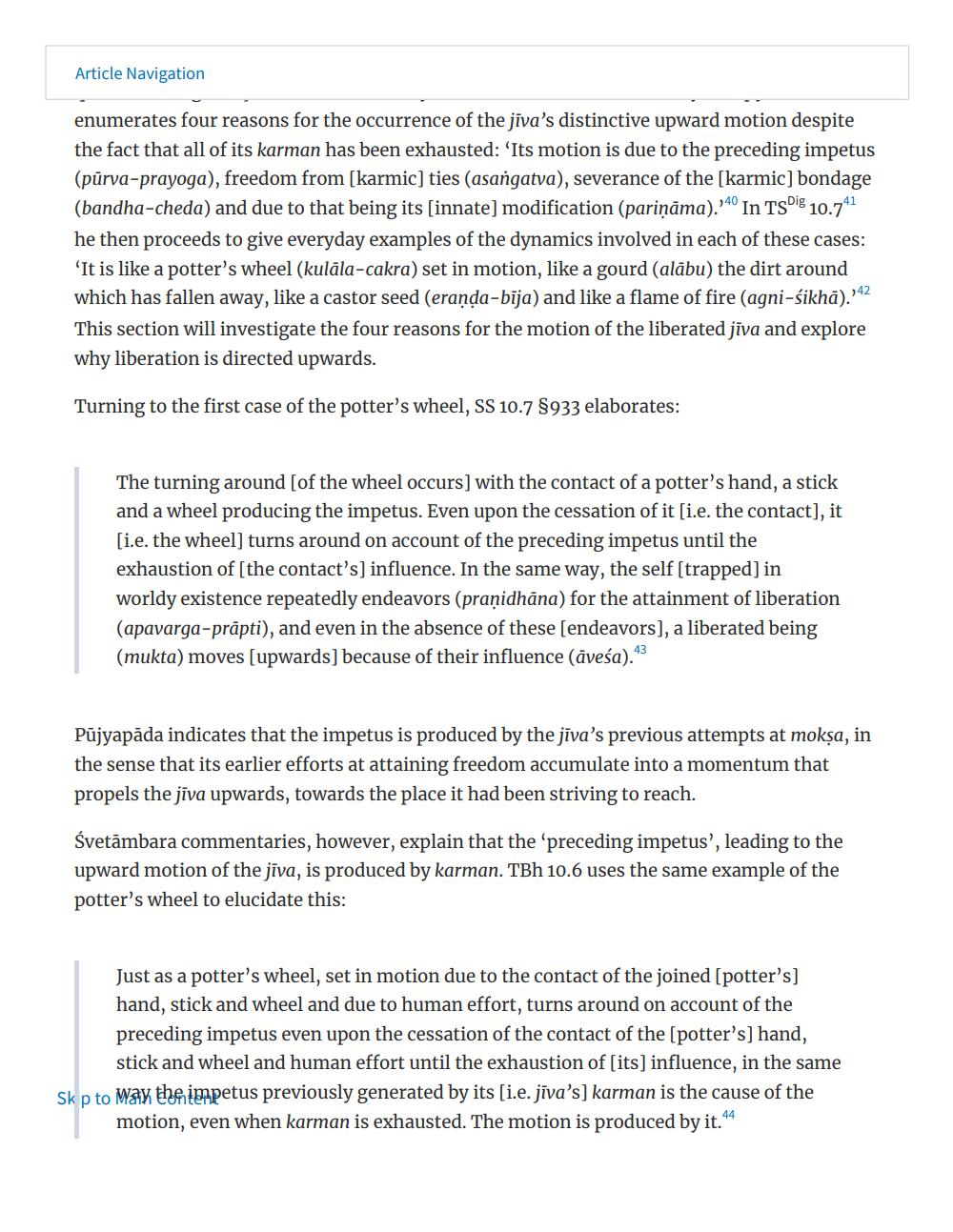Book Title: Jaina Philosophers On Nature Of Liberation Author(s): Publisher: Unknown View full book textPage 7
________________ Article Navigation enumerates four reasons for the occurrence of the jiva's distinctive upward motion despite the fact that all of its karman has been exhausted: 'Its motion is due to the preceding impetus (pūrva-prayoga), freedom from (karmic) ties (asangatva), severance of the (karmic] bondage (bandha-cheda) and due to that being its [innate) modification (pariņāma).' In TSD 10.741 he then proceeds to give everyday examples of the dynamics involved in each of these cases: 'It is like a potter's wheel (kulāla-cakra) set in motion, like a gourd (alābu) the dirt around which has fallen away, like a castor seed (eranda-bīja) and like a flame of fire (agni-śikha).'42 This section will investigate the four reasons for the motion of the liberated jiva and explore why liberation is directed upwards. Turning to the first case of the potter's wheel, SS 10.7 $933 elaborates: The turning around (of the wheel occurs) with the contact of a potter's hand, a stick and a wheel producing the impetus. Even upon the cessation of it [i.e. the contact), it [i.e. the wheel] turns around on account of the preceding impetus until the exhaustion of the contact's] influence. In the same way, the self (trapped) in worldy existence repeatedly endeavors (pranidhāna) for the attainment of liberation (apavarga-prāpti), and even in the absence of these sendeavors), a liberated being (mukta) moves [upwards) because of their influence (āveśa).43 Pujyapāda indicates that the impetus is produced by the jiva's previous attempts at mokşa, in the sense that its earlier efforts at attaining freedom accumulate into a momentum that propels the jīva upwards, towards the place it had been striving to reach. Svetāmbara commentaries, however, explain that the 'preceding impetus', leading to the upward motion of the jīva, is produced by karman. TBh 10.6 uses the same example of the potter's wheel to elucidate this: Just as a potter's wheel, set in motion due to the contact of the joined (potter's] hand, stick and wheel and due to human effort, turns around on account of the preceding impetus even upon the cessation of the contact of the [potter's] hand, stick and wheel and human effort until the exhaustion of its) influence, in the same Skp to way the impetus previously generated by its (i.e. jīva's] karman is the cause of the motion, even when karman is exhausted. The motion is produced by it.44Page Navigation
1 ... 5 6 7 8 9 10 11 12 13 14 15 16 17 18 19 20 21 22 23 24 25 26 27 28 29
